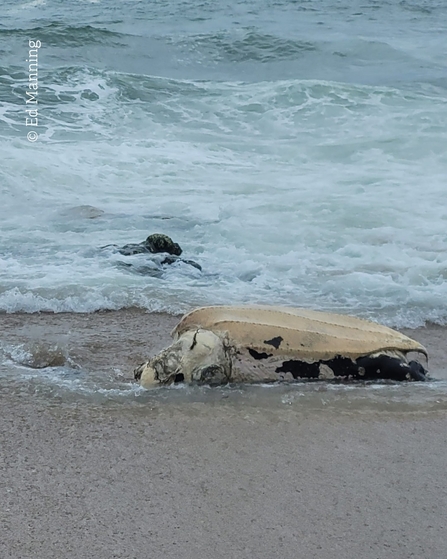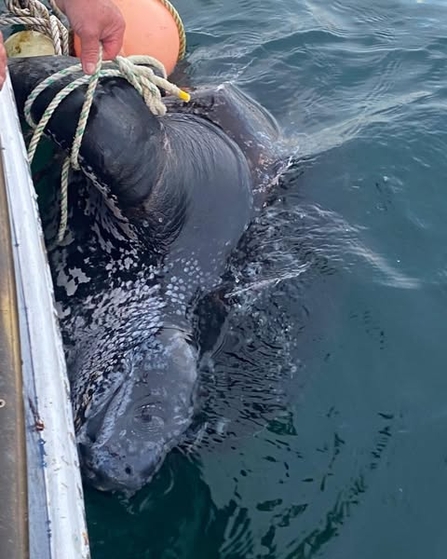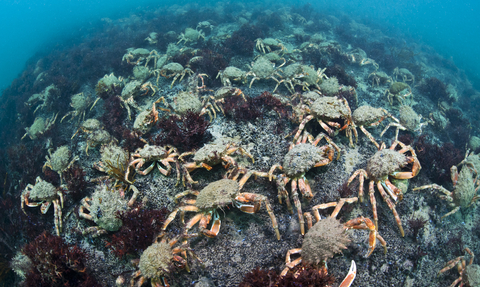Cornwall Wildlife Trust’s Marine Strandings Network has received a report of a leatherback turtle washed ashore at Porthleven Beach on Wednesday 3rd September. Sadly, the animal was already in an advanced state of decomposition and a full post-mortem examination was not possible. However, samples were collected by a trained volunteer for analysis by the Cornwall Marine Pathology Team.
The discovery is thought to be linked to an earlier report from a local fisherman, who had observed a large leatherback turtle entangled in his pot line at sea last week. Due to the turtle’s considerable size, he was unable to bring it ashore. It is believed that the stranded turtle at Porthleven is likely to be the same individual.



